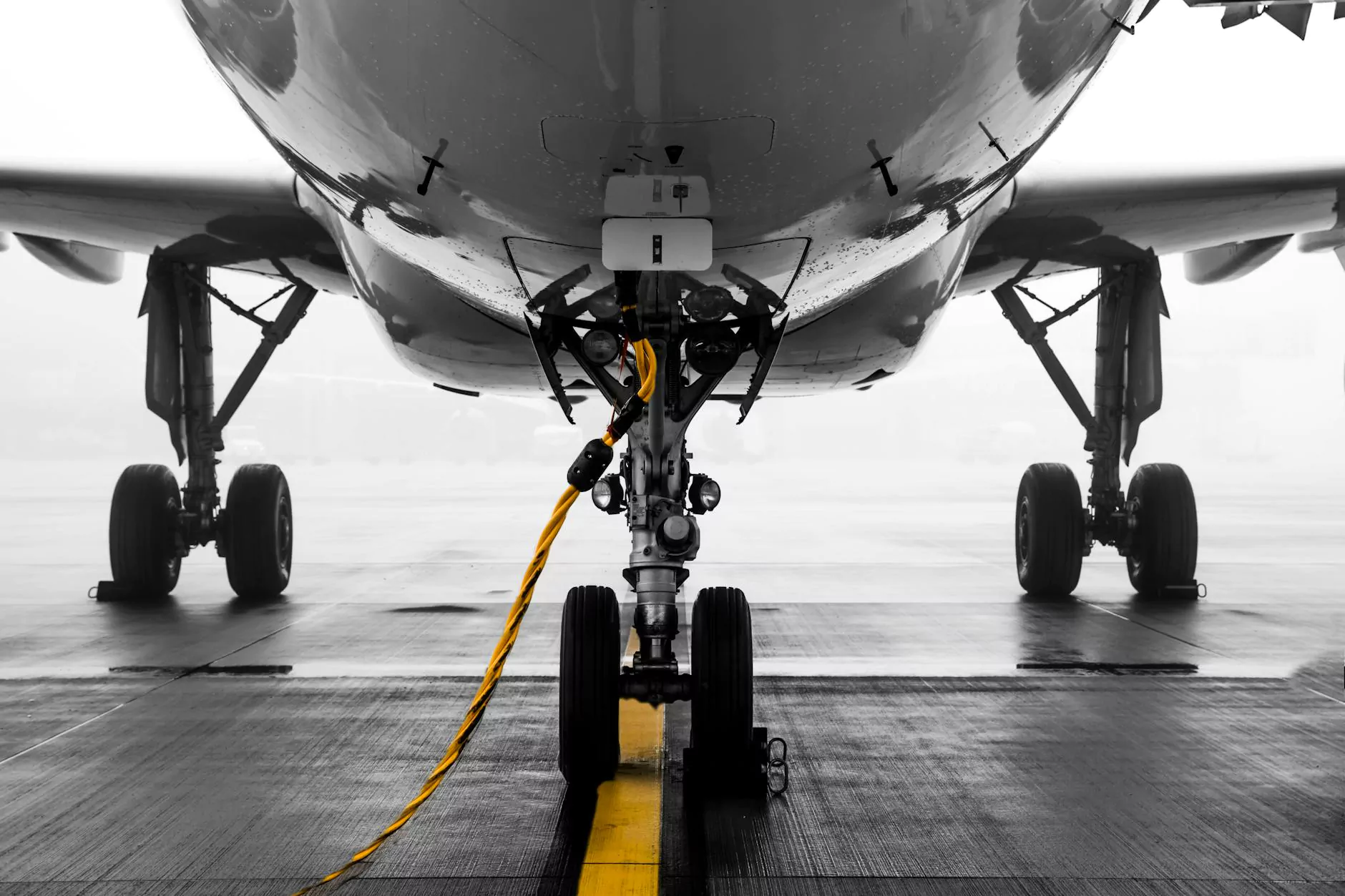Ultimate Guide to Tracking Air Shipments: Boost Your Business Efficiency and Supply Chain Performance

In the dynamic world of global commerce, air freight remains a vital component for businesses aiming for rapid delivery, reliability, and customer satisfaction. One of the most critical aspects of air cargo logistics is the ability to accurately track air shipments throughout their journey. This capability not only enhances transparency but also streamlines operations, reduces costs, and increases trust among clients.
Understanding the Importance of Tracking Air Shipments in Modern Business
As companies expand internationally, the complexity of managing logistics grows exponentially. Tracking air shipments offers real-time insights into the location and status of cargo, enabling proactive decision-making and enhanced supply chain agility. When customers expect swift deliveries, transparent tracking becomes a competitive advantage, fostering customer loyalty and satisfaction.
What Is Tracking Air Shipments?
Tracking air shipments refers to the process of monitoring cargo from the point of origin—typically at an airport or shipping center—through each stage of transit, until it reaches the final destination. This process utilizes advanced technology, such as GPS, RFID, barcode scanning, and integrated logistics management systems, to provide detailed updates on shipment status.
The Technology Behind Effective Shipment Tracking
The backbone of modern shipment tracking involves several innovative technologies:
- Global Positioning System (GPS): Offers real-time location data, allowing precise tracking of cargo in transit.
- Radio Frequency Identification (RFID): Uses electromagnetic fields to automatically identify and track tags attached to cargo, providing instant updates at various checkpoints.
- Barcode Scanning Systems: Facilitate quick scanning of shipments during loading, unloading, and transit, maintaining an accurate tracking record.
- Advanced Logistics Software: Integrates data from all tracking devices, providing centralized dashboards accessible to logistics managers and clients alike.
Benefits of Properly Implemented Shipment Tracking for Your Business
Implementing a comprehensive tracking air shipments system delivers multiple benefits that directly impact your business’s success:
- Enhanced Transparency: Customers and stakeholders can view real-time updates, increasing trust and satisfaction.
- Improved Operational Efficiency: Real-time data enables proactive management, reducing delays and improving resource allocation.
- Reduced Losses and Theft: Continuous monitoring decreases the risk of cargo mishandling or theft.
- Cost Savings: Accurate tracking minimizes detention times, unnecessary handling, and rerouting costs.
- Better Customer Service: Clients appreciate timely updates, leading to improved relationships and repeat business.
- Compliance and Documentation: Ensures shipments meet regulatory requirements with thorough tracking records for auditing purposes.
How to Optimize Your Shipment Tracking Process
Maximizing the efficiency of tracking air shipments involves strategic planning and the deployment of the latest technology. Here are essential steps to optimize your logistics operations:
1. Integrate Advanced Tracking Systems
Adopt integrated logistics management platforms like CargoBooking.Aero, which combine GPS, RFID, and barcode scanning to create a seamless view of your shipments.
2. Establish Clear Communication Channels
Ensure all stakeholders—airports, shipping centers, transportation providers, and customers—are connected through real-time notifications and updates.
3. Leverage Data Analytics
Utilize analytics tools to evaluate shipment history, identify bottlenecks, and predict potential delays before they occur.
4. Train Your Logistics Teams
Empower your staff with proper training on tracking technology and procedures to ensure accurate data collection and response capabilities.
5. Maintain Regular System Upgrades
Technology evolves rapidly. Regular updates to tracking software and hardware ensure precision, security, and compatibility with emerging systems.
Role of Airports, Shipping Centers, and Transportation in Shipment Tracking
The effectiveness of tracking air shipments hinges on the seamless coordination among various components in the logistics chain:
Airports
Airports act as critical nodes where cargo is received, consolidated, and dispatched. Modern airports employ sophisticated tracking systems, integrating RFID and barcode technology at every checkpoint to ensure real-time data capture.
Shipping Centers
Shipping centers manage warehousing, customs clearance, and final delivery arrangements. They utilize tracking information to coordinate loading schedules, handle documentation, and plan subsequent transportation phases efficiently.
Transportation Providers
Ground transportation providers—trucks, rail, or cargo vans—are equipped with GPS tracking devices that transmit location data, ensuring a comprehensive picture of shipment progress at all times.
Choosing the Right Logistics Partner for Superior Shipment Tracking
Partnering with a reliable logistics provider like CargoBooking.Aero can significantly enhance your tracking air shipments capabilities. Key factors when selecting a partner include:
- Technological Capabilities: Does the provider use the latest tracking tools and software?
- Global Network: Can they support international shipping routes effectively?
- Customer Support: Do they offer 24/7 assistance for troubleshooting and inquiries?
- Compliance and Security: Are they compliant with international standards and security protocols?
- Transparency and Reporting: Do they provide detailed reports and real-time tracking dashboards?
Future Trends in Shipment Tracking for Air Cargo
The logistics industry continually evolves, and tracking air shipments is no exception. Emerging trends include:
- Internet of Things (IoT): Increasing deployment of IoT devices on cargo for even more precise monitoring.
- Blockchain Technology: Enhancing transparency and security through immutable digital ledgers.
- Artificial Intelligence (AI): Improving predictive analytics for proactive decision-making.
- Automation and Robotics: Streamlining handling processes at airports and shipping centers to reduce human error.
- Sustainable Tracking Solutions: Using eco-friendly devices and methods to reduce environmental impact.
Conclusion: Elevate Your Business with Reliable Shipment Tracking
In today's high-speed commerce environment, having robust tracking air shipments capabilities is essential for any business involved in international trade. It empowers you to maintain transparency, improve operational efficiency, and provide superior customer service. Leveraging innovative technology and trusted logistics partners like CargoBooking.Aero ensures your shipments are monitored meticulously from start to finish.
Investing in advanced tracking systems and integrating them seamlessly into your supply chain will not only lead to cost savings but also elevate your reputation in the global marketplace. Embrace the future of logistics today—your business’s growth depends on it.









